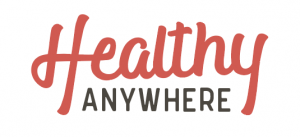
This is your brain and body on stress.
Your pulse quickens. Your pupils dilate, muscles constrict, blood pressure heightens, and energy surges. Your focus sharpens, as your brain and body are on high alert.
Sound like a dream for modern-day productivity?
In some measure, stress is good for you. Yes, stress can be healthy and keep you on your toes and shooting for the stars.
But too much unchecked, mismanaged stress can break you, from the inside out.
We’ve learned a good bit from researchers over the past century in how stress affects the body and brain and what you can do to manage it.
A Harvard physiologist, Walter Cannon, first described the “fight or flight” response in the 1920s. He explained how stress activates an elaborate chain of controls and hormones to maintain stability in the face of a perceived threat (AKA “homeostasis”).(1)
In a nutshell – your brain signals your body to secrete hormones and to divert energy and attention towards survival. Functions such as digestion, your immune system, and reproduction are suppressed in favor of your cardiovascular system, energy production, and respiration.
That’s right – there’s little food absorption, virus-fighting, or baby-making when you’re under stress!
But again, all of this is A-OK so long as the threat and stress are momentary, and we have time to recover – i.e. calm it down.
The self-regulating system controlled by your brain includes the adrenal glands and hormones like adrenaline and cortisol. Cortisol raises your blood sugar for increased energy and also suppresses inflammation and your immune system. Once the stressor subsides, hormone levels and bodily functions return to normal, and ideally, you’ve burned off any excess energy.
In the 1930s, researcher Hans Selye discovered the deleterious effects of sustained stress while experimenting on rats. He found internal organ damage (adrenals, thymus, etc) and death in rats that endured prolonged periods of stress. He termed the “general adaptation response” which is a three-step progression of unchecked destruction from stress:(2)
Phase I: Acute phase. No problem here, just your normal fight-or-flight.
Phase II: Resistance phase. The stress doesn’t subside and fight-or-flight is continuously activated.
You escape one situation and before you can catch your breath, you’re facing yet another, new stressor. Your brain continues to upregulate cortisol and over time, your body builds up a resistance to cortisol. Since your immune system is weakened, you’re likely sniffling more and feeling “run down” if not sick already. You’re fatigued yet may have trouble sleeping, your cognitive function can get fuzzy, and you’ll likely notice new belly fat – a direct result of excess glucose and blood sugar imbalance – all thanks to continual cortisol.
Phase III: Exhaustion phase: The name says it all. Your adrenals are tapped. You’ve got nothing more to give. Cortisol eventually runs out and your immune system that has been suppressed can go into hyper-drive here and cause all sorts of problems, including autoimmune diseases. You may have thyroid problems or cardiovascular problems – and you’ll most likely feel exhausted most days. Gastrointestinal, fertility issues, diabetes, and/or obesity can also result.(3) Such extreme stress has also been implicated in cancer growth.(4)
Selye further noted that “It is not stress that kills us, It is our reaction to it”.(5) The phases of stress seem to escalate if we neglect to manage it and allow ourselves to catch our breaths and recover.
If you’ve ever felt near-suffocated by stress, you’re not alone!
Back in the early 1980s, Harvard cardiologist Herbert Benson noted that 60% of all physician visits were stress-related.(6) Nearly four decades later, this stat is reported to be as high as 90%.(3)
But Dr. Benson also had a solution to counter fight-or-flight, and he called his solution “the relaxation response.” He introduced it in the 1970s, during a time when mindfulness and “meditation” were shunned as near quackery in medical circles. The relaxation response was aptly named to articulate the end effects (lowering heart rate, blood pressure, etc) versus the means. He brought medical attention to the power of these tools after extensively studying the effects on humans, and he effectively first legitimized the mind/body connection to medicine.
Our take on beating stress? It’s in the Healthy Anywhere mantra: Eat Clean + Breathe Deep + Move Often = Never Settle.
1) Eat Clean
2) Breathe Deep
3) Move Often
Poor eating habits and too much or too little exercise are all literal stressors. We need stress management techniques, nourishing and healthy eating, plus optimal movement and exercise. This holistic approach goes a long way to bolster our bodies in managing stress and bringing our best.
How to Breathe Deep
Below is one example* stress management practice, adapted from Dr. Benson’s “Relaxation Response” which involves sitting relaxed in a quiet space, while focusing on a “mental device” for 10 – 20 minutes(6)
- Choose a word or short phrase (e.g. “peace”, “light”, “love”, “I am love”, “one”, etc).
- Sit in a comfortable and dignified position. (spine straight, chin slightly lifted)
- Relax your muscles. Take a moment to more fully relax. Gently stretch anything (neck, shoulders, etc) that needs attention.
- Close your eyes.
- Breathe slowly and deeply, paying attention to each inhale and exhale.
- With each exhalation, repeat your chosen word or phrase.
- Allow thoughts to come, and let them go without attachment.
- If your mind starts to wander, bring it back to the inhalation and exhalation with your word or phrase.
Continue as long as you need, ideally 10-20 minutes, but even 2-5 minutes is beneficial. - At the end, sit quietly for a few moments with your eyes open and start to move slowly and gently when you’re ready. Take your time when standing.
Tips:
- Put your phone and devices on “Do not Disturb” or mute during this time!
- Use a meditation timer or app. Be sure the volume is set at a comfortable, not jarring(!) level. I usually set any “interval” to 00:00 as I only want to hear the bell when it’s time to end. There are many free options – a couple I’ve used include Insight Timer (app) and onlinemeditationtimer.com.
- Anytime you ‘notice’ that your mind has wandered off during the practice is a cause for celebration – you’ve just experienced a mindful moment in the act of noticing itself.
- Don’t worry if it’s difficult for your mind to slow down. There’s no self-shaming, no ‘doing it wrong’. The point is to practice present moment awareness through your breath and create a calming effect on your body.
*This is one of many varied practices in “Breathing Deep”. We’ll outline more in upcoming articles.
REFERENCES
- Davies KJ. Adaptive homeostasis. Mol Aspects Med. 2016;49:1–7. Retrieved at: doi:10.1016/j.mam.2016.04.007
- Selye, Hans. “A Syndrome Produced by Diverse Nocuous Agents,” (Department of Biochemistry, McGill University, Montreal, Canada) is reprinted by permission from Nature (vol. 138, July 4, 1936, p. 32); copyright © 1936 Macmillan Magazines Ltd. Retrieved at: doi.org/10.1176/jnp.10.2.230a
- Bauman, E, Ph.D., and Friedlander, J, N.C. (2016) “Stress and Endocrine Interactions” Therapeutic Nutrition Textbook – Part 1. pp 1-37. Bauman College.
- Moreno-Smith, M., Lutgendorf, S. K., & Sood, A. K. (2010). Impact of stress on cancer metastasis. Future oncology (London, England), 6(12), 1863–1881. Retrieved at: doi:10.2217/fon.10.142
- Selye, Hans, M.D. The Stress of Life. (1978) McGraw-Hill Education, Second edition.
- Benson, Herbert, M.D. Beyond the Relaxation Response. (1984) Time Books.
Healthy Anywhere helps executive travelers enjoy delicious, organic foods, and stay healthy, anywhere in the U.S.
Eat Clean + Breathe Deep + Move Often = Never Settle™


Pingback: 6 ways to build resilience for facing tough types and times - Healthy Anywhere